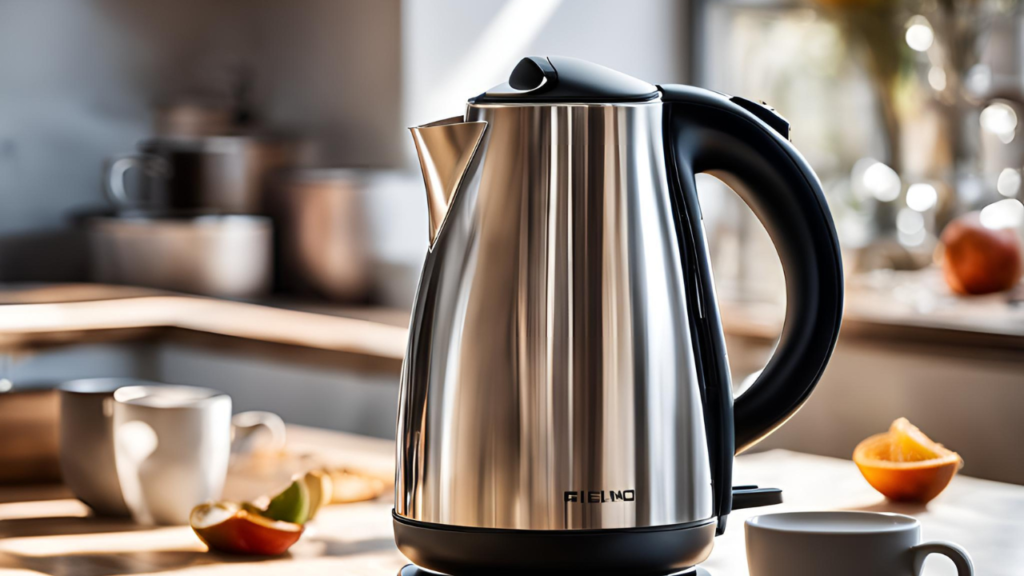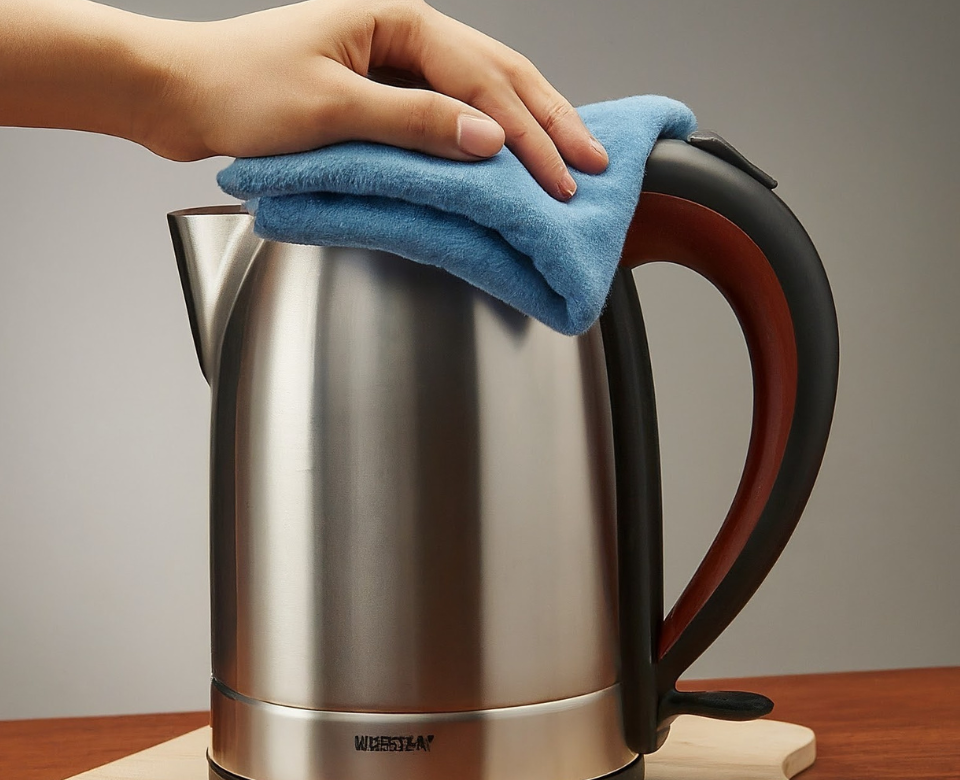Electric kettles are becoming necessary household equipment in many homes in today’s fast-paced society. These gadgets provide speed and convenience unlike any other, whether it’s making instant noodles for a midnight snack or creating a cup of tea in the morning.But can we use an electric kettle daily? Is it safe, in the long run? Let’s explore.
Table of Contents
Can we use an electric kettle daily?
Due to its energy efficiency, safety, and versatility ,we can use an electric kettle daily . If you wish to use a kettle on a daily basis, you should use a high-quality kettle and clean it every day to prevent water from getting inside and affecting its functioning and causing buildup over time. It can be used daily with the right maintenance.This blog discusses the advantages and disadvantages of kettles, tips for daily use, and more.
How to use an electric kettle daily?
Here is a step-by-step guide:

1. Fill the kettle:
- To use a nice kettle purchased from the market, open the cover and fill the kettle with the needed amount of water. Every kettle has a level and should not be filled beyond it. Overfilling a kettle might limit its efficiency.
2. Turn it on:
- The kettle should be put in a stable location, and the plug should be connected into a safety board. When you turn on the switch and watch the inductor within the kettle light up, the kettle is ready to start.
3. Wait for boiling:
- Generally, it takes 3 to 5 minutes for the water to heat up. Then, when the water is completely heated, the thermal power-off mechanism and automatic shutoff mechanism inside the kettle automatically turn off the kettle.
4. Unplug and pour:
- Then, remove the kettle from the switchboard and transfer the hot water to a cup, mug, or cooking pot. When the kettle isn’t boiling anything, leave it unplugged.
5 Clean:
- Heating water in a kettle every day can develop limescale buildup on the bottom, reducing the kettle’s ability to function, so you should properly clean it every day. Cleaning your kettle thoroughly will allow it to last longer.
You can also check my this blog 👉👉👉How to use an electric kettle for the first time ?
Advantages of an electric kettle
Flexibility:

- Electric kettles have many benefits, one of which is their flexibility. They are light in weight and can be carried anywhere and can be easily used by plugging them into a socket.
Effective cost:

- Electric kettles are quite affordable; high-quality kettles can cost up to Rs 2000, while less expensive models can cost anything from Rs 500 to Rs 1000. It’s worth it to purchase a high-speed, energy-efficient gadget here at such a low cost.
Energy efficient:

- Electric kettles are known for their energy efficiency. Compared to gas and microwaves, electric kettles generally waste very little energy. Electric kettles are designed in such a way that the heating element inside them transfers energy directly to the water and loses very little energy, making them energy-efficient devices.
Time efficiency:

- Electric kettles are also known for their time efficiency. Electric kettles generally take less time to heat water than a stove. A high-quality kettle usually takes 3 to 4 minutes to heat water.
Sustainability:

- Compared to the old kettle, the new kettle has become more sustainable.
Multiple uses:
- Kettles are used for many other purposes than heating water. For example:
- To prepare noodles.
- To make soup.
- To prepare coffee and tea.
- To warm milk.
- Cook pasta, boil eggs.
- To prepare drinks like green tea and hot chocolate.
Disadvantages of an electric kettle
Limited Functionality:

- The electric kettle is used to heat water and prepare small meals. It should never be used for large meals or cooking, which is one of its main disadvantages.
The cost of advanced capabilities:

- Despite being affordable, the kettle’s advanced features, such as its automated shut-off system and temperature control system, are not cheap.
Health Risks:

- Some low-quality kettles are built of metal or dangerous plastic. As soon as the water in the kettle heats up, a metal or plastic component enters the water, which could eventually cause health risks if consumed.
Noisy:

- When boiling water, some kettles can make noise, which could be annoying in peaceful places.
Tips For Using an Electric Kettle Daily

- Always pick a high-quality electric kettle composed of glass or stainless steel.
- The kettle should be completely cleaned once a week if it is used daily.
- You should always use filtered water while heating water in the kettle because the kettle does not fully purify the water.
- When heating water in a kettle, never add too much water.
- The kettle should never be run empty.
- Do not use the kettle if you see that it is broken or has an internal issue; it may cause a short circuit.
Unplug the kettle from the switchboard when not in use. - Take care when cleaning to avoid getting water into the kettle.
- The kettle should always be kept dry.
- Never let the kettle heat up when you are heating something. You should never touch the kettle’s hot surface.
- Turn off the kettle immediately whenever you see that it is heating up more than usual.
- The kettle should never be heated on a short-circuited board.
- You should focus on keeping the kettle’s interior components in good condition.
- Never use a kettle to cook a big meal.
- The kettle has to be serviced if it is producing more noise than is necessary.
How to remove burn marks from an electric kettle?

- First, empty the kettle, then add vinegar or juice and fresh water. Then, boil the mixture and leave it in the pot for 1 to 2 hours. Next, remove the mixture and clean the bottom of the kettle with a sponge to remove any dirt. Then, thoroughly clean the kettle in the freshwater. If necessary, you may need to wash it two or three times. Following that, before using the kettle again, wipe it down with a dry cloth to remove any remaining water.
What is the average life of an electric kettle?
Kettles typically have a lifespan of three to four years. However, it is determined by a variety of other criteria, like the kettle’s quality, frequency of usage, maintenance, and others.
To extend its longevity:
- After each use, thoroughly clean the kettle with vinegar, juice, and water. So there is no limescale buildup within the kettle.
- Never use a kettle without water, as this might cause the kettle to overheat and damage rapidly.
- Avoid overfilling.
- Use the kettle with care so that it does not suffer any mechanical damage.
Now I think you have some questions like these then check out my other blogs 👇
👉 Can you put tea leaves in an electric kettle ?
👉👉 Can an electric kettle be repaired ?
👉👉👉 Do kettles use a lot of electricitry ?

